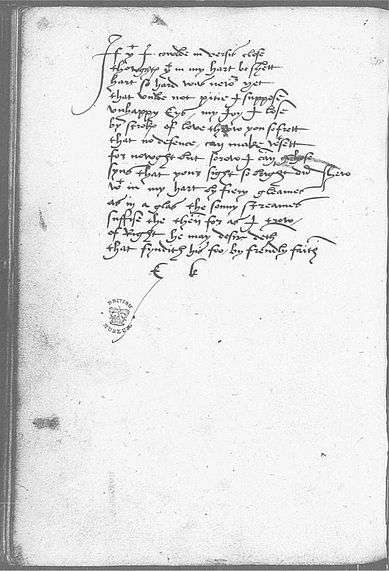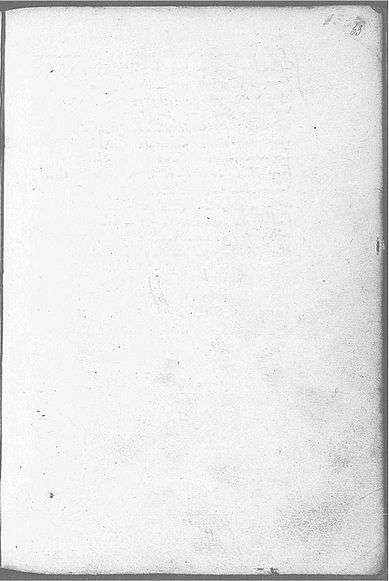|
Introduction | Contributors | Textual Introduction |
| ←In places Wher that I company | blame not my lute for he must sownde→ |
 The Devonshire Manuscript facsimile 63v |
 The Devonshire Manuscript facsimile 63r |
f. [63r]
f. [63v]
1 If that[[The Devonshire Manuscript/Appendix_I:_Paleographic_Features|{{th}+t+}]] I cowlde in versis close
2 [[The Devonshire Manuscript/Appendix_I:_Paleographic_Features|{{th}+t+}]]{es} thowghtesthat in my hart be shett
3 hart so hard was newer{w+r+} yet
4 that vulde not pitie I suppose
5 vnhappy Eys1/ my Ioy I lose
6 by strokes{es} of love throw you so frett
7 that no defence / can make with{w+t+}sett
8 for nowght but sorow I can chose
9 syns that your sight so bright did shew
10 with{w+t+}in my hart by fiery gleames
11 as in a glas the sonny streames
12 suffise the then for as I trow /
13 of Right he may desir deth
14 that fyndith his foo / by frendly faith
E K2
Notes & Glosses
1. This spelling of "eyes" is unusual in the manuscript.
1. Presumably, this refers to Edmund Knyvett.
Commentary
Attributed to Edmund Knyvett (“E K”) in the manuscript, this poem was entered by H7 and explores the popular medieval trope of love at first sight (that is, the sight of a lady can strike the observer with instant love).